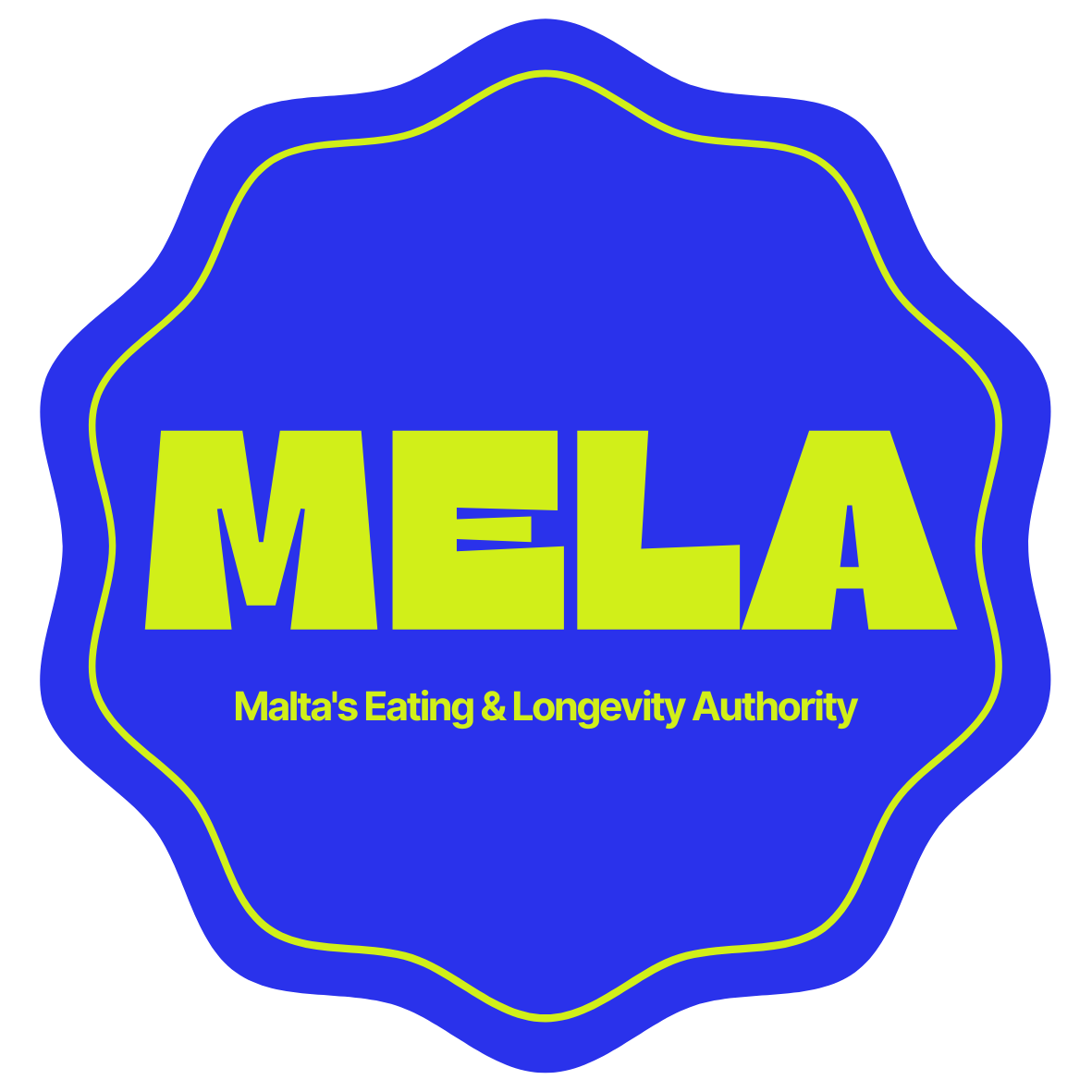Shockingly, Malta faces some of the most severe water scarcity and quality issues globally, and it affects more than just water availability, it’s impacting public health, agriculture, food quality, and costs for locals and tourists alike. Beneath the Mediterranean’s alluring blue waters lies a hidden struggle that requires the attention of all Maltese society and its visitors. This comprehensive guide delves into Malta’s water challenges in September 2026, revealing startling facts, actionable advice, and innovative solutions.
Why Maltese Water Quality Matters for Everyone
Whether you’re a tourist eager to dive into pristine waters or a local seeking sustainable daily living, Malta’s water scarcity and quality crisis affects you. As of 2026, Malta’s water stress levels exceed 40%, placing the nation among the highest globally in terms of water scarcity and quality risks. With seawater intrusion into aquifers and salinity levels rising, groundwater, which supplies 60% of the island’s water, is becoming increasingly unsuitable for consumption, agriculture, and recreation.
According to data from the Department of Environmental Health in 2026, Malta continues efforts to monitor bathing water safety as part of its active Bathing Water Programme. While recreational waters meet standards, alarming research into groundwater quality suggests we could be approaching a tipping point. Issues like food contamination, soil salinity, and waterborne health concerns are growing more acute.
The Shocking Stats You Need to Know: Malta’s Water Challenges
- Groundwater Dependency: 60% of Malta’s water supply comes from groundwater, heavily affected by salinity and contamination.
- Desalination Costs: Desalination now accounts for 60% of Malta’s potable water, operating at energy-intensive levels contributing to high water bills.
- Agricultural Strain: Farmers rely on treated wastewater and brackish water, yet declining water quality could risk soil fertility and crop output.
- UN Scarcity Threshold: Per capita water availability in Malta is far below the UN water scarcity benchmark of 1,000 cubic meters annually.
Spatio-Temporal Variations in Groundwater: What Recent Data Reveals
A 2026 hydrochemical analysis of Malta’s groundwater uncovered concerning variations in quality across regions and seasons. Some key findings include:
- Seawater Intrusion: Coastal aquifers show heightened salinity due to seawater mixing, making water less suitable for home or farm use.
- Nitrate Concentration: Urban and agricultural runoff is degrading water quality across multiple regions.
- Clay and Limestone Challenges: Malta’s geological foundation of limestone and clay complicates water retention and filtration, exacerbating contamination risks.
For locals and sustainability-minded tourists in Malta, these water quality dynamics highlight the urgency of adopting innovative solutions for agriculture, waste management, and personal consumption.
How These Issues Impact Agriculture and Local Cuisine
Malta, renowned for its Mediterranean diet, faces a hidden strain in food production caused by water quality issues. 35% of Malta’s water goes to farming, either through irrigation or treated wastewater. However, salinity variations are affecting soil health, posing risks to certain high-demand crops like tomatoes and olives.
Malta’s Farming Resilience
Local farmers have begun implementing innovative practices, such as switching to salt-tolerant crops and using reverse osmosis water for irrigation. While such measures help, they also come with increased production costs, driving up food prices, a surprise many tourists face when eating out.
Healthy eating enthusiasts will be glad to know that Malta’s culinary scene is adjusting rigorously to meet EU water and food safety directives. More restaurants are embracing transparency about ingredient sourcing and working with farmers who excel at sustainable, water-sensitive practices.
Desalination vs. Reverse Osmosis: Malta’s Lifeline Solutions
Malta currently relies heavily on desalination plants, supplying 60% of potable water, but these operations consume significant energy and contribute to higher water prices. Reverse osmosis technology provides dependable drinking water that meets EU standards. However, as Malta continues to push for renewable energy sources, keeping water costs sustainable remains a challenge.
Desalination Statistics: The Energy Debate
- Desalination processes add up to 30% of local electricity consumption in some months.
- Alternative approaches such as solar-powered desalination are under exploration, hoping to offset costs while reducing dependency on traditional fossil fuels.
Learn more about Malta’s efforts to innovate water quality technologies at platforms like OECD’s water quality insights.
A Farmer’s Perspective: Navigating Soil Salinity
Take the example of Valletta Farms, a small-scale producer famous for organic vegetables sold directly to restaurants. Farmers are working to combat soil degradation by leveraging crop rotation, optimizing treated wastewater, and implementing advanced soil salinity management systems. Despite successes, higher costs present stark choices for agricultural operators, expand investments or risk lower productivity.
Insider’s Guide: How You Can Drink, Cook, and Eat Responsibly in Malta
To help health-conscious locals and visitors navigate Malta’s water-related problems, here are actionable tips:
Drinking Water Solutions
- Water Filters: Invest in high-quality water purification devices that reduce salinity and contaminants effectively.
- Bottled Water Choices: Opt for water brands transparent about desalination and purification processes.
Locally Sourced Cuisine Tips
- Check for restaurants aligned with MELA AI standards promoting sustainable agricultural practices.
- Avoid salty water influence by prioritizing seasonal menus featuring low-irrigation crops.
Explore healthy restaurants in Mellieha that prioritize water-sensitive menu planning.

Seasonal Recipes That Tackle Water Scarcity
Water-Optimized Summer Salad
Ingredients: Locally grown tomatoes, fresh basil, high-quality olive oil, desalinated cucumbers
Nutritional Benefits: Antioxidants from tomatoes, healthy fats from olive oil
Integrating desalinated cucumbers ensures sustainability without sacrificing taste.
Winter Soup
Ingredients: Maltese lentils, rosemary, black pepper, desalinated carrots
Health Insight: High fiber content ensures good digestion while desalinated water avoids salinity concerns.
Malta’s Emerging Water Technologies
2026 marks increased collaboration between researchers and the Maltese government toward solutions including:
- Seawater filtration innovations, cutting energy consumption by up to 20%.
- Brackish water harvesting, ideal for irrigation without overexploiting aquifers.
Stay up to date on water innovations and policy updates via OECD insights.
The Sustainable Dining Experience: Malta’s Hidden Water-Sensitive Gems
Choose rooftop dining destinations where local farmers supply ingredients cultivated with reclaimed water strategies. Some top choices:
- Adura Restaurant Mellieha: Renowned for low-water crops paired with desalination-rich salads.
- Le Soleil: Michelin-starred, sustainably focused Mediterranean menus.
Learn more about water-conscious culinary masterpieces from these top restaurants.
.png)
Frequently Asked Questions
Why is groundwater so vital for Malta?
It supplies 60% of water needs, spanning domestic use, farming, and recreation. Degradation risks heightened salinity and unsuitable drinking conditions.
Are desalinated waters safe to drink in Malta?
Yes, desalination maintains EU drinking standards, but pricing and sustainability remain areas under improvement.
Where can I find sustainable restaurants prioritizing water-sensitive practices?
Check out platforms like MELA AI-approved restaurants.
Final Thoughts: The Call for Action
Malta’s water quality challenges in 2026 demand collective action, from policymakers introducing bold regulations, locals adopting sustainable practices, and tourists understanding the environmental footprint of their activities. By focusing on innovation, community resilience, and proactive farming solutions, Malta can overcome its water scarcity crisis.
Dive deeper into sustainable dining options through Malta’s restaurant guides and take the first step toward supporting local water initiatives.
Conclusion
Malta’s ongoing water challenges in 2026 underscore the urgent need for holistic solutions that address both environmental demands and the well-being of its people. From strained groundwater sources to energy-intensive desalination and salinity-impacted agriculture, these issues emphasize the importance of innovation and collaboration at every level, policy, industry, and individual action. By combining scientific advances, sustainable agricultural practices, and informed consumer choices, the nation can move closer to a future where clean, accessible water preserves health, supports the economy, and sustains the beauty of the Maltese Islands.
As locals and visitors alike seek to make healthier and more sustainable dining decisions amid these pressing challenges, initiatives like MELA AI are playing a pivotal role. With its mission to promote healthy dining and sustainability, MELA AI highlights restaurants across Malta and Gozo that incorporate responsible sourcing, healthy ingredient use, and transparent practices into their offerings. Restaurants awarded the prestigious MELA sticker reflect not just culinary excellence but also a commitment to water-conscious and sustainable operations.
For health-conscious diners, explore MELA-approved restaurants to discover dining experiences that align with your values, keeping your meals as refreshing and sustainable as the Mediterranean breeze. Together, small, conscious choices can make a big difference in crafting a brighter, water-smart future for Malta.
FAQs About Malta’s Water Quality Concerns and Solutions in 2026
How severe is Malta’s water scarcity problem in 2026?
Malta’s water scarcity remains one of the most critical challenges worldwide, with water stress levels exceeding 40% in September 2026. Per capita water availability is significantly below the UN water scarcity threshold of 1,000 cubic meters annually. With groundwater resources constituting approximately 60% of the island’s water supply, their degradation due to seawater intrusion and salinity pressures is particularly worrying. Although desalination plants provide about 60% of potable water, the process is energy-intensive and reflects in higher utility bills. Addressing these issues requires collective action through innovative technologies, water conservation measures, and sustainable agricultural practices.
Is the groundwater in Malta safe for consumption and agricultural use?
Groundwater in Malta, which forms a significant portion of water usage, is increasingly at risk due to high salinity levels, agricultural runoff, and nitrate contamination. Recent hydrochemical analyses from 2026 revealed concerning variations in water quality across regions and seasons, highlighting seawater intrusion as a significant issue for coastal aquifers. This makes groundwater less suitable for both drinking and farming. Treated wastewater and brackish water are mitigating agricultural water shortages; however, concerns remain regarding long-term effects on soil salinity and crop output. For domestic use, investing in high-efficiency filtration systems is recommended to ensure safe water consumption.
How does Malta manage to meet its potable water needs amidst water scarcity?
Malta relies heavily on desalination plants, which generate approximately 60% of the island’s potable water. These plants employ reverse osmosis technology to convert seawater into drinkable water that adheres to strict EU directives. However, the energy demands of desalination are significant, contributing to higher water costs and stressing the need for renewable energy solutions to offset carbon emissions. Innovations like solar-powered desalination and brackish water harvesting are being explored to create a more sustainable framework for potable water production.
How is water quality impacting agriculture and food prices in Malta?
In Malta, approximately 35% of water usage supports agriculture, relying increasingly on treated wastewater or brackish water. Rising salinity levels in groundwater and the high costs of treatment pose challenges to soil fertility and crop yields. Farmers are adopting strategies like cultivating salt-tolerant crops and using advanced irrigation systems, but these technologies raise production costs. Consequently, food prices have increased, a trend affecting both locals and tourists dining across the islands. Sustainable agricultural practices, supported by government programs and innovative technology, are vital to maintaining Malta’s culinary heritage and keeping food accessible.
How can residents and tourists in Malta support sustainable water practices?
Both residents and visitors can adopt simple yet impactful strategies to support sustainable water use in Malta:
- Filter Usage: Invest in water filtration systems to reduce reliance on bottled water and improve drinking water quality at home.
- Eco-Friendly Practices: Limit water wastage by using eco-friendly appliances and mindful consumption habits, such as shorter showers.
- Dine Sustainably: Opt for restaurants that prioritize locally grown ingredients cultivated using sustainable, water-sensitive farming practices. Platforms like MELA AI make it easy to discover water-conscious dining options throughout Malta.
How does Malta’s Bathing Water Programme maintain the safety of recreational waters?
Malta’s Department of Environmental Health conducts weekly testing as part of the Bathing Water Programme to ensure the safety of recreational waters. Results from 2026 show that bathing waters meet EU standards consistently, making them safe for swimming and water sports. Despite challenges in groundwater quality, these proactive monitoring efforts preserve the reputation of Malta’s beautiful beaches. Tourists can confidently enjoy the pristine waters while supporting eco-friendly tourism practices that minimize environmental impact.
Which water-conscious restaurants in Malta are worth visiting?
Dining sustainably in Malta is made easy with platforms like MELA AI, which feature restaurants awarded the prestigious MELA sticker for implementing eco-friendly and water-conscious practices. Restaurants like Adura Mellieha and Le Soleil serve locally sourced, seasonal menus aimed at minimizing water consumption. Opting for culinary spots that embrace sustainable farming and irrigation practices not only ensures a delicious meal but also supports Malta’s environmental goals. Check out top MELA-certified restaurants for a memorable and responsible dining experience!
What are the benefits of dining at MELA-approved restaurants in Malta?
Choosing MELA-approved restaurants ensures you’re supporting establishments committed to health-conscious dining and sustainability. These restaurants adopt practices such as sourcing locally grown, low-irrigation crops and working with farmers who prioritize treated wastewater for irrigation. The MELA sticker signifies transparency, making it easier to identify restaurants offering nutritious, thoughtfully prepared meals. By choosing a MELA-certified venue, diners can contribute to water conservation while enjoying fine local cuisine. Visit MELA AI to discover the best options.
Are desalination alternatives being explored in Malta to reduce environmental impact?
Yes, Malta is exploring alternative desalination approaches to reduce the environmental and economic burden of traditional methods. Solar-powered desalination plants and brackish water harvesting technologies are being developed to lower energy consumption and reliance on fossil fuels. These innovations could cut the energy impact of desalination by up to 20%, aligning with Malta’s climate action goals. Continued investment in research and development is critical for Malta to achieve a sustainable balance between water availability and environmental preservation.
Is it possible to dine ethically and enjoy traditional Maltese cuisine during water shortages?
Absolutely, sustainable dining in Malta often complements the principles of the Mediterranean diet, emphasizing low-water, locally produced ingredients. Restaurants aligned with the MELA AI initiative craft menus around seasonal produce, reducing the overall water footprint. Tourists and locals can enjoy classics such as fresh tomato-based pasta or locally caught seafood, which integrate desalinated water and minimal irrigation crops in their production. Supporting these establishments protects Maltese culinary heritage while promoting ethical consumption habits.
Check out another article that you might like:
Malta’s Sun Terrace Culture: How Outdoor Living Transforms Wellness and Tourism in 2026
About the Author
Violetta Bonenkamp, also known as MeanCEO, is an experienced startup founder with an impressive educational background including an MBA and four other higher education degrees. She has over 20 years of work experience across multiple countries, including 5 years as a solopreneur and serial entrepreneur. Throughout her startup experience she has applied for multiple startup grants at the EU level, in the Netherlands and Malta, and her startups received quite a few of those. She’s been living, studying and working in many countries around the globe and her extensive multicultural experience has influenced her immensely.
Violetta is a true multiple specialist who has built expertise in Linguistics, Education, Business Management, Blockchain, Entrepreneurship, Intellectual Property, Game Design, AI, SEO, Digital Marketing, cyber security and zero code automations. Her extensive educational journey includes a Master of Arts in Linguistics and Education, an Advanced Master in Linguistics from Belgium (2006-2007), an MBA from Blekinge Institute of Technology in Sweden (2006-2008), and an Erasmus Mundus joint program European Master of Higher Education from universities in Norway, Finland, and Portugal (2009).
She is the founder of Fe/male Switch, a startup game that encourages women to enter STEM fields, and also leads CADChain, and multiple other projects like the Directory of 1,000 Startup Cities with a proprietary MeanCEO Index that ranks cities for female entrepreneurs. Violetta created the “gamepreneurship” methodology, which forms the scientific basis of her startup game. She also builds a lot of SEO tools for startups. Her achievements include being named one of the top 100 women in Europe by EU Startups in 2022 and being nominated for Impact Person of the year at the Dutch Blockchain Week. She is an author with Sifted and a speaker at different Universities. Recently she published a book on Startup Idea Validation the right way: from zero to first customers and beyond, launched a Directory of 1,500+ websites for startups to list themselves in order to gain traction and build backlinks and is building MELA AI to help local restaurants in Malta get more visibility online.
For the past several years Violetta has been living between the Netherlands and Malta, while also regularly traveling to different destinations around the globe, usually due to her entrepreneurial activities. This has led her to start writing about different locations and amenities from the POV of an entrepreneur. Here’s her recent article about the best hotels in Italy to work from.



